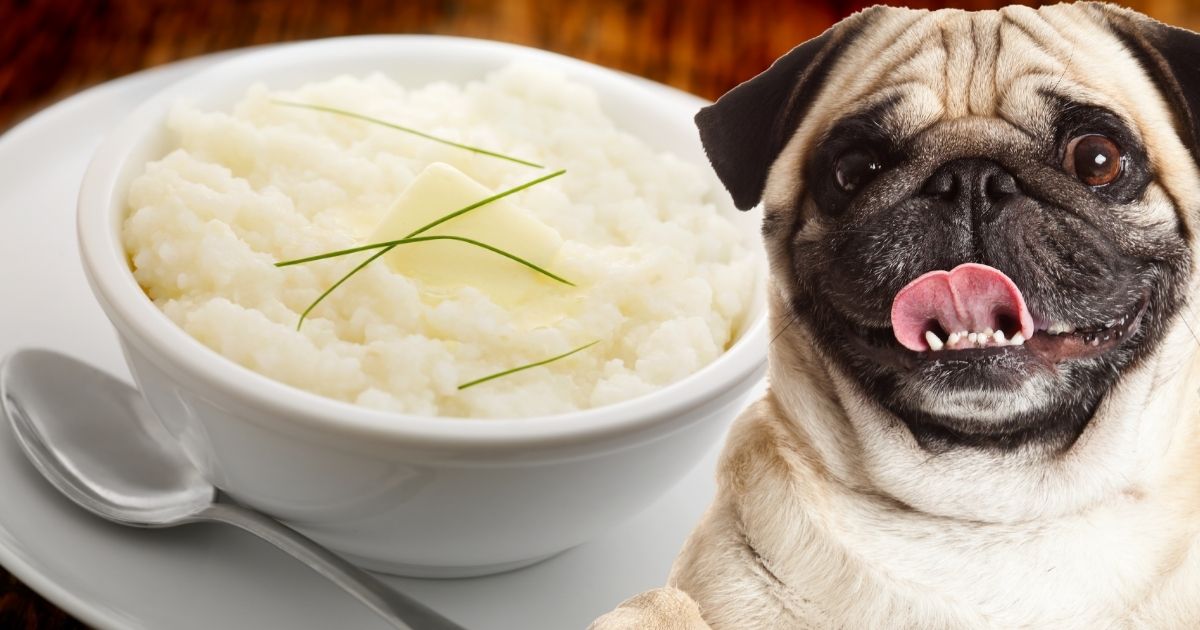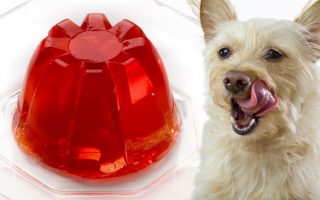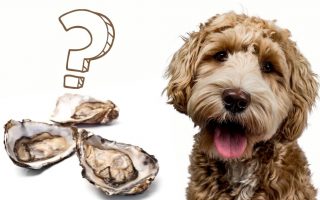There are several misconceptions about grit. However, one that mainly stands out is the belief that grits are only meant for breakfast, which is far from the truth.
There is no designated time to eat grits; they can serve as breakfast, lunch, or special dinner.
But what about canines? Can dogs eat grits? Are grits safe for dogs?
In this article, we explore everything you need to know about feeding this meal to your pup.
What Are Grits?
Grits are unevenly grounded and boiled corn that has been cooked with butter.
They’re typically eaten as porridge and can be eaten as hash browns, croutons for soups or salads, grit fritters, grit ice cream, and grit cakes.
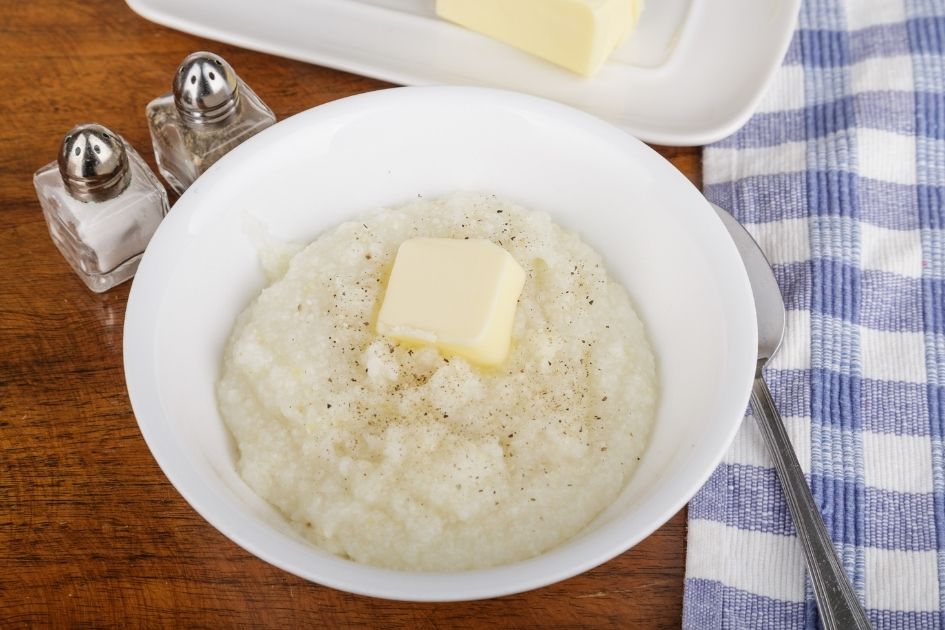
They are made up of ground dried kernel hominy grits. Hominy grits are from soaked dry corn kernels that have been boiled with lime to get rid of the husk.
Grit is a popular meal across the country and originates from the southern part of the United States.
When cooked, it is an excellent alternative for oatmeal, polenta, rice, etc., as they all offer similar nutritional benefits—in some cases even more than other grain meals.
Can Dogs Have Grits?
Pet nutritionists do not directly answer the question, but they have a lot to say regarding feeding corn to pets, particularly dogs.
A 2020 joint report by North American Renderers Association (NARA), The Institute for Feed Education and Research (IFEEDER), and Pet Food Institute (PFI) stated that corn was one of the primary ingredients used in the making of dog food.
About 1.2 million tons of corn are used annually to produce dog food supply across the nation.
Although meat and bones are also used, they aren’t often used as much as corn.
Only about 533,253 tons of meat and bones are used in making dog food.
Corn is a very nutritious and safe food; thus, it isn’t surprising they are the most used ingredient in dog meal.
However, you may wonder, if corn is such a nutritious meal and grits are made from them, then what can go wrong?
Although grits come from corn, specifically kernels, they are not the best choice to feed your furry friend.
Of course, your dog can have a bit of grit; this won’t do it any harm; however, feeding it often will result in health consequences.
Undoubtedly grits offer some nutritional benefits, but they also contain many harmful substances that far outweigh their pros for dogs.
Grits are cooked in a way to enhance their taste, which involves adding lots of seasoning, salts, butter, cheese, and others.
The finished product is no longer just grounded soaked corn but a combination of different seasonings, making it less healthy for dog consumption.
A closer look at the ingredients that go into making grits would make dog owners realize that grits aren’t the best of choice to feed to pet dogs.
It’s more of a question of can you feed your dog buttered-up kernel?
Here’s a nutritional value breakdown of 233g of grits:
| Nutritional Info | Amount |
|---|---|
| Calories | 151 |
| Fat | 0.9g |
| Sodium | 4.7mg |
| Potassium | 51mg |
| Carbohydrates | 32g |
| Fiber | 1.6g |
| Sugar | 0.2g |
| Protein | 2.9g |
| Calcium | 0.2% |
| Iron | 7.4% |
While grits may have its nutritional benefits, its disadvantages elude its advantage, thus making it not a healthy meal for dogs.
Risks of Feeding Grits to Your Dog
A few bites of grits don’t precisely mean a quick emergency trip to the vet.
However, your dog’s continuous consumption will no doubt cause some severe health complications.
Stated below are reasons you shouldn’t feed grits to your dog.
- Excess carbohydrates: Carbohydrates are no doubt beneficial to humans, but grits offer more than needed to dogs.
Aside from that, carbohydrates from grains and wheat are not the best for dogs as it is likely to raise blood sugar level. Carbohydrates from fruits are a much better option for a canine.
- Harmful Ingredients: Grits contains lots of extras (cheese, butter, pepper), and they are toxic to dogs.
- Excess fat: The amount contained in grits is too much for a dog. Frequent consumption can lead to obesity and other related health problems.
So, Can Dogs Eat Grits?
With all facts noted, yes, dogs can eat grits and will most likely love them. However, should you continue feeding them grits?
A wise answer would be no. If you have no other alternative at the moment, there are ways you can go about feeding grits to your pet dog and avoid its harmful effect.
Plain-cooked grits without the seasonings, salts, and extras are safe for a dog’s consumption but must be fed moderately. Do not feed uncooked grits to your dog.
Related: Can Dogs Eat Tortillas? (Flour, Corn Or Tortilla Chips)
How about other forms of grits? Are they also safe for dogs to eat?
Can Dogs Eat Instant Grits?
A little instant grits won’t harm your dog. They are pretty easy to digest, and your dog may likely indulge in them too much, so you have to ensure they eat just a little bit of it.
Can Dogs Eat Grain Grits?
Unlike the human stomach, the dog stomach can’t handle too much whole grain. So it would help if you didn’t feed grain grits to your dog unless it’s well-grounded.
Can Dogs Eat White Grits?
White Grits doesn’t offer many nutritional benefits to dogs. So it would be best if you didn’t feed it to dogs.
Can Dogs Eat Hominy Grits?
Hominy grits are corn treated with lime. They are safe for dogs to eat as long as they are cooked plainly without seasonings and served in small amounts.
Can Dog Eat Yellow Grits?
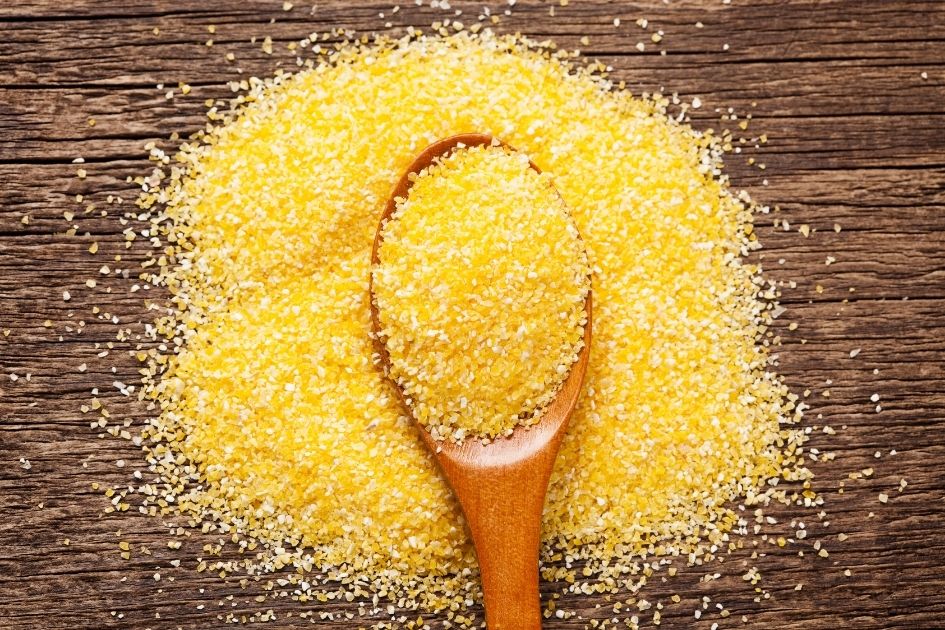
Yellow grits are made from yellow corn and are empty in calories. They offer very little or no nutrient benefits to dogs.
Excessive eating can lead to overweight, diabetes, and heart disease in your dogs. Best not to feed your dog.
Can Dogs Eat Cheese Grits?
Best keep away cheese grits from your dogs. The cheese contains highly saturated fat and doesn’t offer any health benefits to your dog.
Alternative to Grits
There are other alternative meals to feed your dog that are better off than grits and will do fine for breakfast:
- Oatmeal
- Sweet Potatoes
- Boiled Eggs
Will grits hurt my dog?
Grits are not harmful to dogs if eaten in small quantities, but it is better to avoid feeding them to your dog.
Can I feed my dog fried grits?
Please do not feed your dog fried meals. Regular consumption of fried meals causes overweight and heart-related disease.
Can I feed my dog egg and grits?
Eggs are a rich source of protein and amino acids, which are beneficial to a dog’s system. It’s safe to feed your dog a moderate quantity of egg with little grits occasionally.
What do grits contain?
Grits are essentially made from corn. Calcium, carbohydrates, protein are a few of the nutrients packed in grits.
Wrap Up
Dogs can safely eat cooked grits. However, to be on the safer side, it’s best to avoid feeding grits to your dog even though they’re safe for dogs to eat a few bites.
Do not risk satisfying your canine buddy’s taste only to endanger its health.
If you must feed grits to your pet dog, it should be plainly cooked without seasonings.

